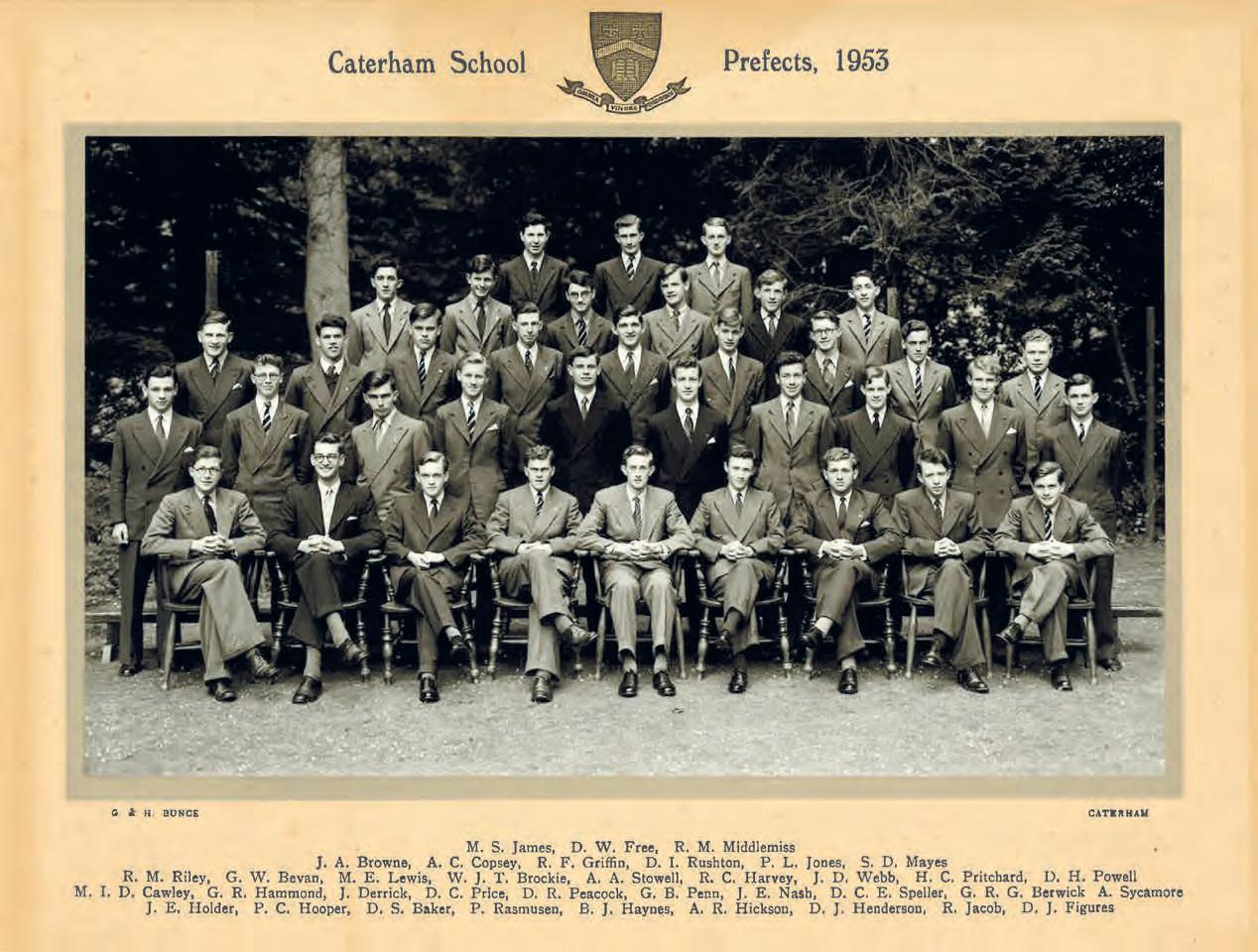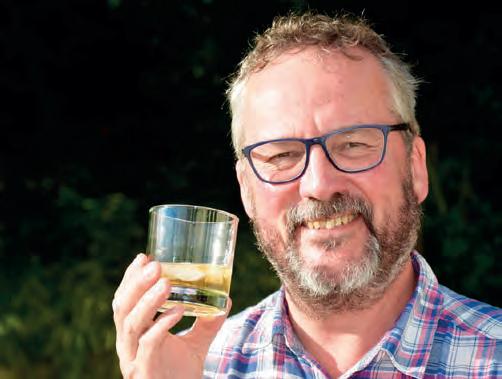
4 minute read
In the Archives
IN THE
ARCHIVES
Advertisement

Thank you to GRAHAME PENN (OC 1945 – 1953) for his donation of an original Sir William Crookes X-Ray tube of the early 1900s to the School’s Physics department where it will be displayed for the interest of today’s students as an example of the development of the cathode ray tube and the subsequent discovery of X-Rays by Whilhelm Rontgen.
After finishing his university degree, in 1960, Grahame worked for Crookes Laboratories Ltd at Park Royal in North West London in their pharmacology department and was given this as it was of particular interest to his wife who was a radiographer.

Grahame has also donated some OC photos after 65 years in his care and remembers in particular two of his OC peers featured in the Prefects 1953 photo (see opposite).
“John Browne was a good friend of mine. In 1953, knowing that we would be required to do National Service when we left at the end of the summer term, we decided we would like to do it in the Royal Navy. To this end, we jointed the RNVR and used to drive to London once per week, after school, to carry out our initial training on HMS President, moored on the Thames Embankment. In the August of that year, we did four weeks further training on the aircraft carrier HMS Indefatigable based at Portland. In October we were called up to do our National Service and did more training at Victoria Barracks at Portsmouth before returning to HMS Indefatigable. After completion of all our training, we were drafted to join the RN Fishery Protection Fleet. This consisted of a flotilla of five WWII Algerine Class minesweepers based at various ports around the UK. I served on HMS Welcome based at Invergordon, in Scotland and John served on HMS Coquette, based at Devonport in Devon. We spent the next 18 months patrolling the coastal water of the British Isles. It was the time coming up to the ‘Cod War’ with Iceland, over fishing rights, so we were kept busy.”

GRAHAME PENN
“At the end of our National Service John embarked on a career in the agricultural industry, eventually becoming a manager for one of Pfizer’s farms. I embarked on a career in the pharmaceutical industry. Sadly, John died suddenly just as he was about to retire.”
“In 1953, I shared a study with Roger Jacob as we prepared for our A levels. He was studying music, whilst I was studying sciences. Whenever I had the opportunity, I used to listen to him practising on the organ of the

Congregational Church in Harestone Valley Road. It was this that sparked off my lifelong interest in church organ music. Over the last 65 years I have amassed a large collection of LPs and CDs covering the period from the Baroque to the 20th Century. I would never have had the talent to play the organ, but I have derived much pleasure from listening to my recordings.”
“I have many happy memories of my days at
Caterham School”.
IN THE
ARCHIVES

Walter, 1936 in Merano, Italy
WALTER SONDHELM
Thank you to the family of WALTER SONDHELM (OC 1935 – 1936) for their donation of Walter’s extensive collection of Caterham School magazines, annual reports and memorabilia. It includes a complete collection of ‘The Caterham School Magazine’ and subsequent ‘The Caterhamian’ from 1935 through to 2000, amongst other journals and reports.
Walter was only 17 years old when he left Caterham as he had talked himself into Manchester University in 1936, where in 1939 he won the major research scholarship and became his professor’s research student.
It is noted in the Old Caterhamian magazine of summer 2005 that “based upon so short an association with the School you have shown astonishing loyalty”. Walter’s reply was “The quick answer to this question would be because it changed my life…”
“When Hitler came to power my father said, “the man is no good”. I was the only Jewish boy in my year and on the next school day I found myself surrounded by boys in Hitler Youth uniforms. It was not always easy… In spring 1935 my father brought me to England – officially for one year to learn English. Early in 1938 my parents abandoned everything they had in Germany and joined me here.

As soon as I came to Caterham I realised I had come into a different world. At Caterham boys were taught to think and question rather than learn facts which had not to be questioned. Here master accepted that they were fallible whilst if you dared to question an obvious mistake in Germany it was considered a criminal act. The German curriculum contained many more subjects but the teaching had little breadth and dept. Our way of doing it was to my liking and within weeks I felt totally at home here…”
“…The subjects I enjoyed most were taught by Mr Maddock (Physics) and Mr Foister (Mathematics) but the master to whom I shall always be grateful, and to whom I owe most at school or university, is Mr DaviesJones. He taught me to communicate. Without an ability to communicate you can achieve nothing.”










